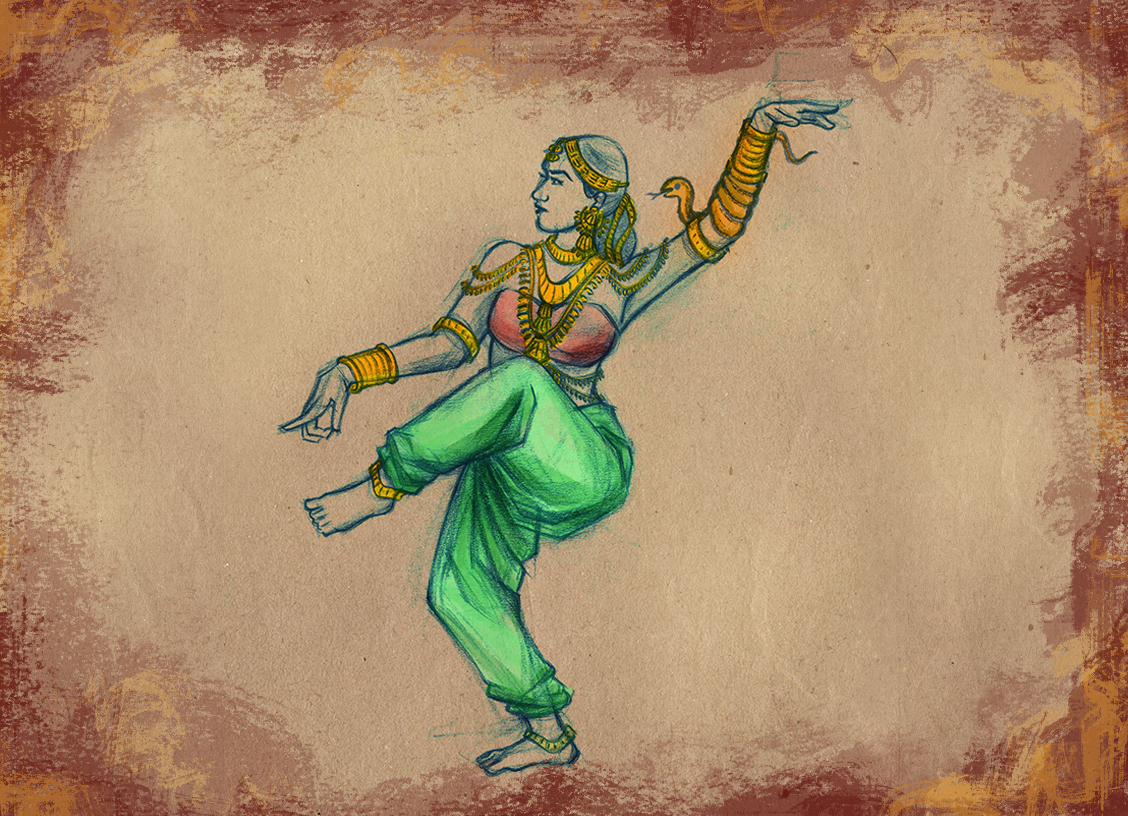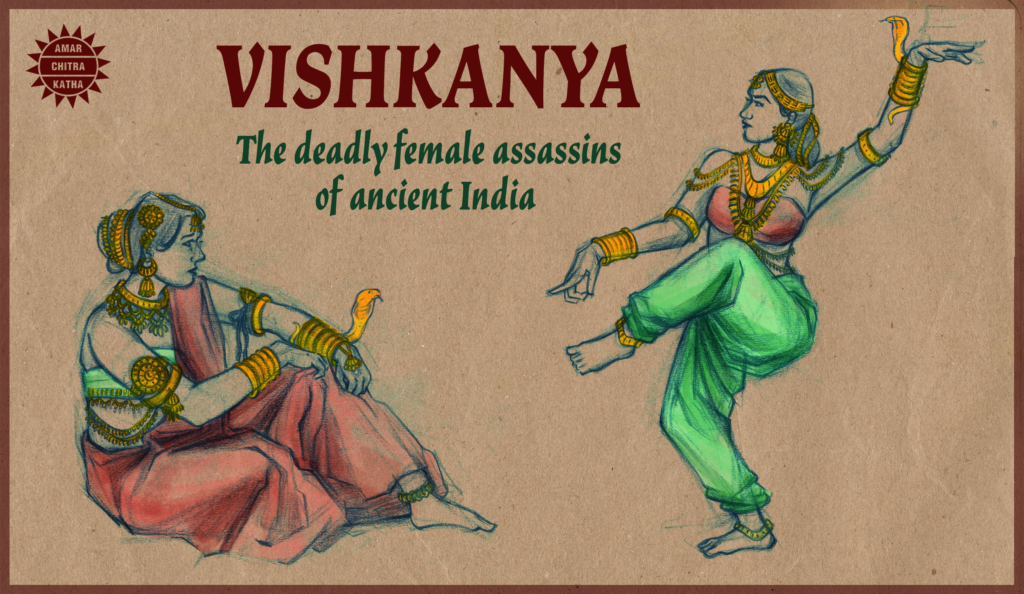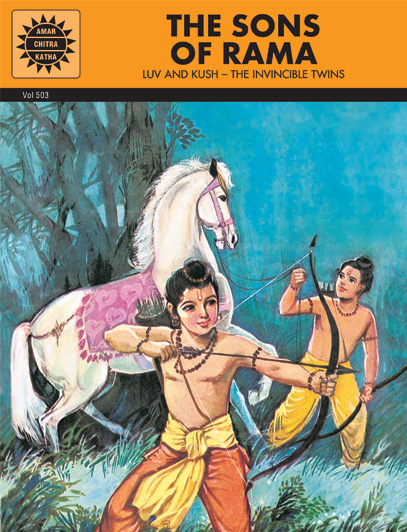Vishkanya: The Ancient Assassins
- November 29, 2023


Vishkanya: The Ancient Assassins
- November 29, 2023
Did you know about the deadly female assassins of ancient India? These women were called ‘Vishkanya’, which literally translates to ‘Poison Maiden.’ These assassins were said to be used by kings and ministers to administer poison to their political rivals, in various ways. Read on to know more these mysterious figures.
Many ancient texts contain mentions of Vishkanyas and their operations in ancient courts. One such text is the Arthashastra, an ancient Indian treatise on statecraft written by Chanakya, a strategist and royal advisor to Chandragupta, the first Mauryan emperor. In addition to this, some local Marathi sources such as the Marathi book, ‘Samrat Akhbar’ and a Persian source by historian Abdul Qadir Badyuni from the period of Mughal Emperor Akbar, also point towards the existence of the Vishkanyas. Similarly, some Ayurvedic texts on toxicology mention Vishkanyas and their dangers. There is also a lot of anecdotal and oral evidence surrounding the legend of these assassins.

According to legend, young girls who were chosen to become Vishkanyas had to undergo rigorous training. A major part of this training included a practice known as ‘Mithridatism’. Mithridatism was method to protect oneself against various poisons by gradually consuming them in small doses daily, to develop immunity against them. Unfortunately, Mithridatism was not effective against all kinds of poison. Hence, many young women died during the process of becoming a Vishkanya. Those who survived were said to become insensitive to poison, and the immunity they attained was beneficial in killing their targets.
To receive more such stories in your Inbox & WhatsApp, Please share your Email and Mobile number.
Once they were fully trained, most Vishkanyas would disguise themselves as dancers or courtesans and approach their victims thus. In many stories, Vishkanyas appear to be able to poison others simply through touch or exchange of bodily fluids. Their blood would also be deadly to those who came in contact with it. However, some other texts suggest that the Vishkanyas weren’t physically poisonous. Instead, they would poison the food or drink of their enemy. They would then consume this food in front of the target to gain their trust. Since the Vishkanyas were immune to poison, they would not be affected, but the target would soon die after eating or drinking the poisoned items.
Once, a Vishkanya was sent, disguised as a dancer, to the court of Emperor Chandragupta Maurya. Suspecting her real identity, Chanakya sent her to the emperor’s enemy, King Parvathak. The very next day, Parvathak was found dead, and Emperor Chandragupta was saved.
Some records mention an incident where the Greek philosopher Aristotle warned Alexander the Great against such dancers gifted by Indian kings to their guests.
Information on the Vishkanyas is found in very limited amount of historical texts, which is why it is difficult to differentiate between fact and legend surrounding these assassins. Perhaps that is why these mysterious and fascinating figures have captured public imagination, turning them into common archetypes even in modern literature.
By Srinidhi Murthy
Read more about fascinating Indian history, only on the ACK Comics app!
To receive more such stories in your Inbox & WhatsApp, Please share your Email and Mobile number.

Comic of The Month
The Sons of Rama
The story of Rama and Sita was first set down by the sage Valmiki in his epic poem 'Ramayana.' Rama was the eldest son of Dasharatha, the king of Ayodhya, who had three wives - Kaushalya, Kaikeyi and Sumitra. Rama was the son of Kaushalya, Bharata of Kaikeyi and Laxmana and Shatrughna of Sumitra. The four princes grew up to be brave and valiant. Rama won the hand of Sita, the daughter of King Janaka. Dasharatha wanted to crown Rama as the king but Kaikeyi objected. Using boons granted to her by Dasharatha earlier, she had Rama banished to the forest. Sita and Laxmana decided to follow Rama. While in the forest, a Rakshasi, Shoorpanakha, accosted Laxmana but had her nose cut off by him. In revenge, her brother Ravana, king of Lanka, carried Sita away. Rama and Laxmana set out to look for her and with the help of an army of monkeys, defeated Ravana. On returning Ayodhya after fourteen years of exile, Rama banished Sita because of the suspicions of his subjects. In the ashrama of sage Valmiki, she gave birth to her twin sons, Luv and Kush.